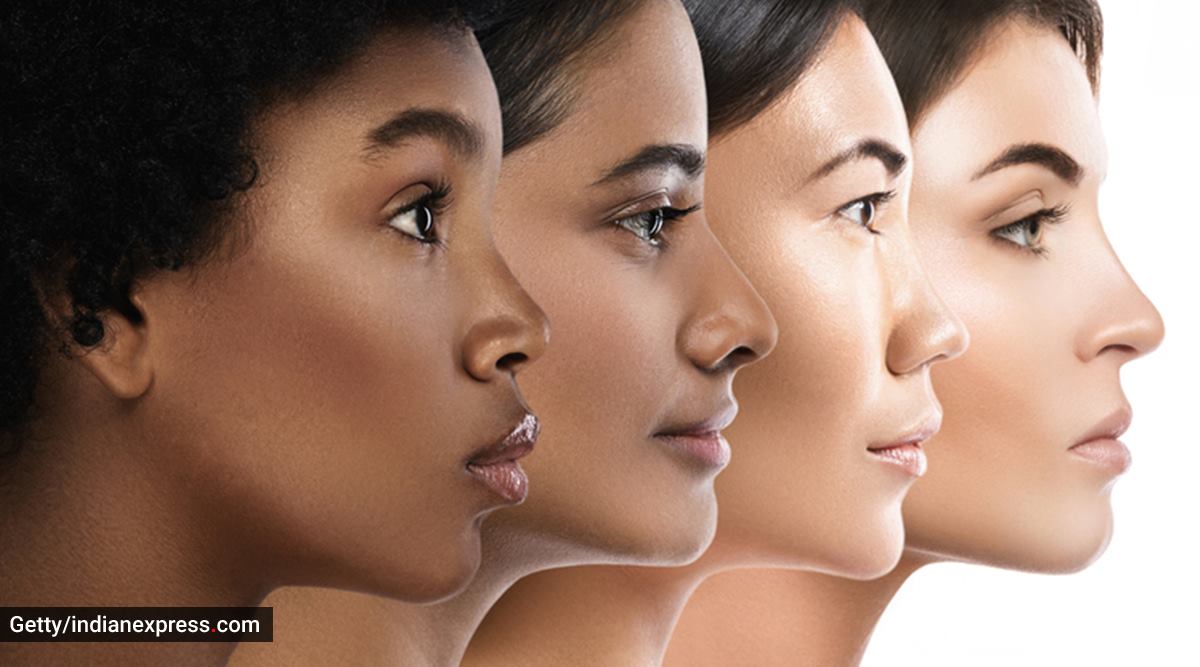Snow White and her social media filters: Why is India still obsessed with fair skin?
Of the many problematic tropes that we were exposed to as kids, the earliest reckoning happened when Snow White’s stepmother became dangerously obsessed with her because she was “whiter” in complexion and, therefore, admired by many.
The ‘magic mirror’ is partially to blame as it would feed her with a twisted notion of beauty every time she would ask, “Mirror, mirror on the wall, who is the fairest of them all?” The mirror would elevate her pride and the misguided soul would further believe her complexion made her superior, and that anyone who was a tone lighter, was her nemesis.
Had the mirror schooled her — saying: “Snow White is fairer than you, but how does it matter?” — it would perhaps have helped so many generations, too. But instead, what followed this fairy tale was an obnoxious idea that white is desirable and any other complexion is less-so.
In today’s world, it would be ideal to think that colourism and racism are totally unfathomable, inconceivable and unforgivable. But here we are, in 2021, still wrestling with issues of race and colour.
Films and television shows ought to take the onus of perpetuating this mindset. There has always been an outcry about an actor promoting a fairness product in our country where a majority of people have brown skin. But when it comes to an actual admission of wrong and a change of conscience, little has happened. Matrimonial ads, too, include the archaic “seeking-a-fair-girl/boy” lines.
Next comes social media, which, in the pandemic, has gorged on the fears and insecurities of people. While the problematic nature of social media filters was always known, it was recently brought to netizens’ attention that there exists one filter in particular — on the photo-sharing app Instagram — which champions the lighter skin tone by giving users a literal blackface!
For the uninitiated, the term ‘blackface’ is used to refer to the practice of wearing makeup to imitate the appearance of a black person, by a non-black person. Which makes it racially offensive and inappropriate for people to be using it anyway.
Twitter user @vaishnavioffl highlighted it in a series of tweets, which irked many people who just could not believe the audacious nature of the filter, and the ignorance of people using them. A majority of the videos — screenshots of which were shared — had users looking glum in the blackface filter. Then suddenly it vanishes, and they seem happy again — dangerously implying that dark complexioned people are inherently unhappy.
There’s an actual blackface filter that ends up showing you differently towards the end when you shoot a reel on Instagram and Indian people are doing this like some Fair and lovely ad shit and glorifying it what is wrong with people! pic.twitter.com/Wn0Y1FOSRx
— Valia Babycats ????️???? (@Vaishnavioffl) July 24, 2021
Remember, just some months ago, we were jolted out of slumber by the global Black Lives Matter movement, which called out our hypocrisy and showed a different mirror to society. It prompted us to look inwards, to acknowledge our fallacies and work towards bettering ourselves.
So, why then does such a filter exist?
First of all, there are many such filters. While some simply hide blemishes, acne and scars, there are those that alter your complexion and change your features. But nothing comes as dangerously close to a blackface filter, or similar ones, which associate darker skin tones to despair and loss.
In almost all the videos first the person looks sad that they are darker, and they touch their face and look at their hands. Then they turn back to their original “fair” color and look happy. pic.twitter.com/0Y5ZzcyRO4
— Valia Babycats ????️???? (@Vaishnavioffl) July 24, 2021
Do filters, then, perpetuate body dysmorphia?
Dr Prerna Kohli, an eminent psychologist and founder of MindTribe, tells indianexpress.com that social media is a place for people to talk about themselves. That this self-talk via posting stories on Instagram, pictures on Facebook, etc., helps an individual market themselves or position themselves in front of others.
“Marketing, as we all know, is a great tool. It helps create demand for any product, person, or skill. When products are marketed, organisations may spend millions to create demand, showcase the advantages of the product, etc. Similarly, social media filters may help people market themselves by becoming a more appealing version of themselves. This version in our culture comes with fair skin. Thus, leading to an obsession related to filters that make a person look fairer,” she explains.
No seriously what is this racist fair and lovely shit, @instagram please ban this goddamn filter and trend pic.twitter.com/bnM6583KT8
— Valia Babycats ????️???? (@Vaishnavioffl) July 24, 2021
Agrees Arouba Kabir, a mental health counsellor, wellness coach, and the founder of Enso Wellness. “India is dominated by wheatish or comparatively darker skin tones. Hence, the notion of fairer skin being related to a better-off section of society is widely spread in the younger generation. Being bullied as a child for being dark can also leave a permanent dent on a young mind. When these kids become teenagers, their bodies undergo various changes and due to the childhood misperceptions, children may want to look fairer in an attempt to feel more wanted and liked,” she tells this outlet.
This video has 2.2 million views. What the actual fuck. pic.twitter.com/Wkc0bBbkzf
— Valia Babycats ????️???? (@Vaishnavioffl) July 24, 2021
Body dysmorphia, explains Dr Kohli, is “a type of obsessive-compulsive disorder” in which the individual who suffers believes “one part of his or her body or his or her entire body has some deficit. This deficit is usually not seen by others. The individual can see these minor flaws quite vividly that make them feel embarrassed; they are likely to avoid social interactions due to the anxiety that results from the perceived flaws.”
Adding to this, Kabir says dysmorphia attached to social media is attributable to the vast variety of filters available, making you look fairer, slimmer, having certain type of features like freckles, a beauty mole, changed size of lips, etc. “This altered state of illusion often leads to a feeling where one thinks of themselves to be ‘imperfect’, when away from the filtered life. This leads to various personality issues and can result in a full blown mental disorder.”
Along with this, the individual’s social environment such as comments from friends and family, and psychological factors such as a perceived image of self, etc., also play a significant role, says Dr Kohli.
 Body dysmorphia, explains Dr Kohli, is “a type of obsessive-compulsive disorder” in which the individual who suffers believes “one part of his or her body or his or her entire body has some deficit. (Photo: Getty/Thinkstock)
Body dysmorphia, explains Dr Kohli, is “a type of obsessive-compulsive disorder” in which the individual who suffers believes “one part of his or her body or his or her entire body has some deficit. (Photo: Getty/Thinkstock)
The solution
Should the magic mirror have diagnosed the stepmother’s underlying insecurities? Did it metamorphose into a social media filter? Scarily enough, Kabir says that repeatedly checking the mirror could be a sign of dysmorphia.
“It’s natural and normal for everyone to be critical of how they look, but when it becomes an obsession and starts affecting daily activities, it’s time for a check. People caught in the nuances of body dysmorphia often have one or more of the following presentations.
– Constantly comparing how they look with others
– Repeatedly checking the mirror
– Spending hours thinking about perceived flaw
– Spending loads of money getting unnecessary treatments and surgeries to get that ‘perfect look’
– Excessively involving in makeup to cover up the perceived flaw
– Going into social isolation as they’re ashamed of their physical appearance
– Having anxiety and depression due to the constant negative talk in their mind,” she explains.
Dr Kohli says if one feels their loved one is going through body dysmorphia, they must consult a mental health professional such as a psychiatrist or a clinical psychologist to get the diagnosis. “Later, treatment with psychopharmacological drugs as well as therapy should be given to manage the symptoms. Medication can correct the biochemistry of the brain. Speaking to a psychologist will aid in developing the necessary coping strategies to reduce these intense symptoms. Currently, SSRIs or Serotonin Reuptake Inhibitors with a combination of Cognitive Behavioral Therapy are being used to reduce the impact of this disorder,” she explains.
For more lifestyle news, follow us: Twitter: lifestyle_ie | Facebook: IE Lifestyle | Instagram: ie_lifestyle
For all the latest lifestyle News Click Here

